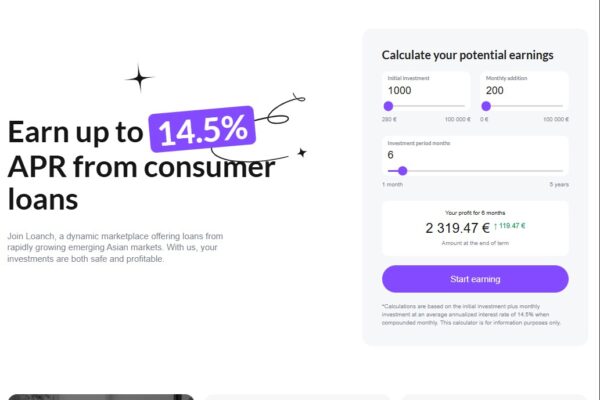KuCoin.com Scam Review -Major Con Crypto Exchange
KuCoin.com isn’t a tiny operation. For many crypto users, it’s one of the go-to exchanges: a platform with hundreds of listed coins, relatively low fees, and a long history. But in recent years, cracks have begun to show—and not just from ordinary traders. Regulators are calling it out. Accusations swirl about money laundering. Some users say their funds became effectively inaccessible.
This isn’t a simple “KuCoin is bad” post. It’s a deep dive into what’s going wrong, why some people believe KuCoin is a “scam,” and whether those concerns are rooted in reality — or overblown.
1. What Is KuCoin — and Why So Popular
-
Founded in 2017, KuCoin has grown into a major global crypto exchange.
-
It offers more than 700+ cryptocurrencies, according to recent reviews.
-
The platform provides a variety of services: spot trading, margin trading, staking/lending, futures, and more.
-
On the security side, KuCoin has made some strong claims: multi-factor authentication, anti-phishing protections, and compliance with PCI DSS standards for payment processing.
These strengths help explain why millions of users still trust KuCoin — but they don’t tell the whole story.
2. Major Regulatory & Legal Storms
Here’s where things start getting very serious.
a) U.S. Criminal Charges and AML Failures
-
In 2024, U.S. federal prosecutors charged KuCoin with significant anti-money laundering failures.
-
According to the charges, KuCoin did not properly verify user identities and allegedly enabled billions of dollars in suspicious transactions.
-
The founders, Chun Gan and Ke Tang, were implicated in a conspiracy and unlicensed money-transmitting business.
-
In early 2025, KuCoin pled guilty, paying nearly $300 million in fines and forfeiture.
-
Part of the settlement requires KuCoin to exit U.S. market operations for at least two years.
These are not minor warnings — they are criminal-level accusations that expose fundamental compliance failures.
b) Questions About Compliance Culture
-
The U.S. case paints a picture of insufficient KYC (Know Your Customer) and AML (Anti-Money Laundering) processes.
-
According to reporting, for many years KuCoin did not apply KYC to existing users, only requiring verification for new ones.
These issues suggest that the risk isn’t just about “bad customer service” or “slow withdrawals”—it could be structural.
3. Real Users Sounding the Alarm
The community feedback on KuCoin is far from uniform. Below are recurring themes from user reports — drawn from discussion boards, review sites, and social platforms.
a) Trustpilot Reviews
-
On Trustpilot, KuCoin is performing very poorly: a 1.6 out of 5 score from over 1,400 reviews. Trustpilot
-
Many users accuse KuCoin of taking money by “misinforming” them, especially about withdrawal or deposit policies. Trustpilot
-
One user claims their SOL-BOT position was wiped out due to alleged “price manipulation” on KuCoin’s side — claiming the same trading pair had very different behavior on other exchanges. Trustpilot
b) Sitejabber Feedback
-
According to Sitejabber, a reviewer described repeated issues: promises of recovery, but support never follows through. sitejabber.com
-
Another user said that despite paying for a “recovery service,” they never got their tokens back, and the exchange’s own support sent “generic responses.”
c) Reddit & Community Warnings
-
Several users on Reddit warn about phishing and smishing:
“I got a text message saying it was from KUCOIN, but it was fake. The SMS had a phone number to call — a classic smishing attempt.”
-
Others accuse KuCoin of theft by policy:
“If you deposit below their minimum deposit limit, they simply take your funds … even if you send more later, they refuse to give back your first deposit.”
-
In other cases, people say their account was frozen, or their tickets went unanswered:
“Kucoin scam … customer support copied-pastes replies … after two weeks I still didn’t hear anything.”
-
There are also long-time users who say they’ve lost funds after “system maintenance” lockdowns:
“They freeze positions without announcement, cancel stop-losses … and your money just sits there while they make excuses.”
These aren’t isolated complaints — they reflect a pattern of frustration among a sizable number of KuCoin users.
4. Risk vs. Legitimacy: Can You Really Call KuCoin.com a “Scam”?
This is where things get complicated.
Why Some Call It a Scam
-
Criminal charges: The U.S. DOJ case is damning — it’s not just regulatory misunderstanding, but a criminal plea. Reuters
-
Poor user experiences: Many users report frozen accounts, missing withdrawals, or “locked” funds.
-
Phishing risk: The number of reported SMS phishing attempts tied to “KuCoin” identity is significant. Reddit
-
Opaque policies: Some say KuCoin’s deposit/withdrawal terms are not crystal clear, especially when using third-party fiat on/off ramps.
Why Others Defend KuCoin
-
Strong security foundation: According to security analysts, KuCoin has a very good security setup: multi-factor authentication, regular penetration testing, bug bounties, and a high rating from some third-party auditors. Coin Bureau
-
Wide asset coverage: For traders who want access to a huge variety of altcoins, KuCoin is still very attractive.
-
Long-standing reputation: As one Redditor put it:
“KuCoin is in the top-10 exchanges globally — why would they risk their reputation if they were a full-on scam?”
-
Settlement and exit strategy: Their guilty plea in the U.S. came with a deal — they paid, accepted responsibility, and agreed to exit the U.S. “for now.” That suggests they intend to continue globally.
5. Key Lessons & Take-Home Warnings
If you’re considering using KuCoin, here are several critical risks to be aware of — plus how to manage them if you decide to proceed:
-
Regulatory Risk
-
KuCoin has explicitly faced criminal charges for operating in the U.S. without required AML / registration. Reuters
-
If you’re trading in a regulated jurisdiction, make sure you understand whether KuCoin is fully compliant locally.
-
-
User Support Problems
-
Based on many user testimonials, support often gives generic or unhelpful replies.
-
Recovery or dispute processes (for lost funds or hacked accounts) may be slow, obscure, or ineffective.
-
-
Phishing & Identity Risks
-
Be very cautious about SMS or email claiming to be from “KUCOIN” — some of those messages appear to be phishing attempts.
-
Always verify legitimate KuCoin domain names and never call phone numbers received through unexpected texts.
-
-
Deposit / Withdrawal Policies
-
Some users report that small deposits are not refunded properly if they don’t meet KuCoin’s minimums.
-
Third-party fiat on-ramps may cause delays or higher “intermediary” fees.
-
-
Long-Term Trustworthiness
-
Their legal settlement in the U.S. shows willingness to work out compliance, but it also signals significant past wrongdoing.
-
Use KuCoin.com cautiously, especially for large holdings — consider splitting funds across platforms for risk mitigation.
-
Conclusion: Scam? Not Exactly — But Definitely Risky
Calling KuCoin.com a full-blown “scam” may be too blunt: it’s a large, established exchange with many legitimate services. But to ignore the very serious regulatory, legal, and user-reported issues would be irresponsible.
Here’s a balanced verdict:
-
Yes, KuCoin has substantial red flags: criminal AML charges, user complaints, and phishing risk.
-
No, it is not simply a “fly-by-night scam” — it has considerable infrastructure, volume, and global presence.
-
Bottom line: KuCoin is a high-risk exchange right now. Not necessarily a scam for everyone, but not a “safe bet” either — especially if you’re holding a lot of funds or relying on perfect support.
If you plan to use KuCoin, do so with caution: understand its policies, verify your security settings, and always diversify where you keep your crypto. Because in the world of digital assets, even big names have vulnerabilities.
Report KuCoin.com Scam and Recover Your Funds
If you have lost money to KuCoin.com, it’s important to take action immediately. Report the scam to Jayen-consulting.com, a trusted platform that assists victims in recovering their stolen funds. The sooner you act, the better your chances of reclaiming your money and holding these fraudsters accountable.
Scam brokers like KuCoin.com continue to target unsuspecting investors. Stay informed, avoid unregulated platforms, and report scams to protect yourself and others from financial fraud.
Stay smart. Stay safe






